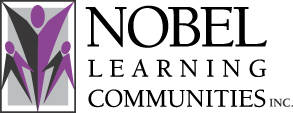Smokefree Innotec ( PINK: SFIO ) retreated more than 40 % after our exit call
Penny Stock Smokefree Innotec ( PINK: SFIO ) slumped...
Read moreArotech Corporation ( NASDAQ: ARTX ): Bad quarterly earnings helps stock to move higher !
Arotech Corporation ( NASDAQ: ARTX ) declared quarterly loss of $ 0.19 a share compared with a profit of $ 0.01 per share a year earlier in 2010....
Read moreNobel Learning Communities, Inc ( NASDAQ: NLCI ) to be acquired by Leeds Equity Partners at $ 11.75 per share, Stock jumped 33 % to $ 11.50.
Nobel Learning Communities, Inc ( NASDAQ: NLCI ) to be acquired by Leeds Equity Partners at $ 11.75 per share, Stock jumped 33 % to $ 11.50 in...
Read moreSigns of Weakening Chinese Economy:Chanos
China's economy is showing real signs of weakening, particularly in real estate, and even could tip into a recession, hedge fund manager Jim Chanos.
What will be the return of Long term investments in commodities? ZERO !!
The long-term expected rate of return on commodities is ‘zero,’ according to Mark Matson of Matson Money.
State Bank Of India SBI - Views of Different Analysts
After the shocking fourth quarter results, the State Bank of India management says they are scaling down growth projections and may see some deceleration. Most brokerages cut...
Read moreSummarizing US economic events: Credit rating,S&P warning, US debt Limit, Deficit cuts, Defaults, Housing double dip.
As we look around the headlines about economies, if we put Europe aside, the only headline buzzing all over is United States has reached its maximum debt limit...
Read moreTo Achieve Sustained GDP Growth Rate of 9 to 10 Percent with Fiscal Prudence and Moderate Inflation is a Major Challenge : Pranab Mukherjee
Government of India Ministry of Finance 11-May-2011 18:05 IST To Achieve Sustained GDP Growth Rate of 9 to 10 Percent with Fiscal Prudence and Moderate Inflation is...
Read moreTablets might not be alternative for PCs at workplace: Dell
Despite the sluggish growth in the personal computer (PC) market, Dell maintains tablets are far from replacing desktop computers, especially in the workplace.
Bribery level rises in European companies: Survey
According to a survey, Employers from big European companies have started offering lavish gifts, cash and other means of awards or gifts to get more businesses and continue to stay...
Read more





